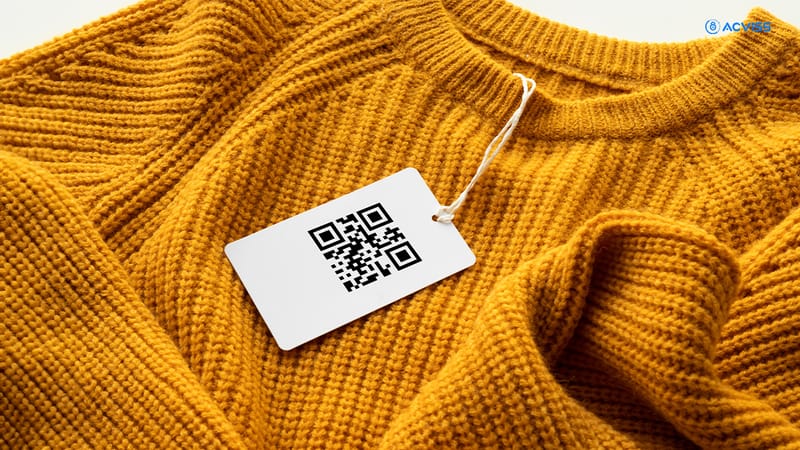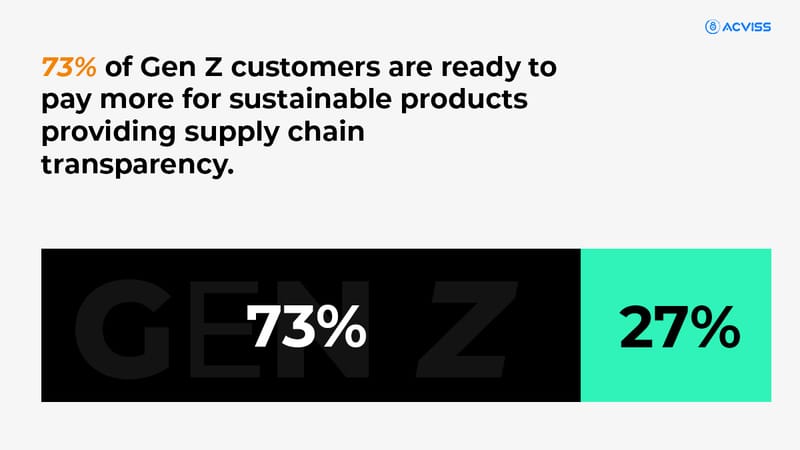What's Trending: How Tech & Informed Consumers Are Shutting Down Counterfeits

The globalized world has brought immense benefits but also challenges like counterfeiting. This blog delves into the evolving landscape of anti-counterfeiting solutions, from self-destructing microchips to the power of informed consumers.
Contents
- Self-Destructing Microchips - A Game Changer in Security
- Combating Counterfeits in the Indian Market
- India-EFTA Trade Agreement: A Boost for Genuine Luxury Goods
- Consumer Power in the Fight Against Fakes
- Traceability Solutions Reshaping Industries in 2024
- QR-Based Anti-Counterfeiting in the Indian Agricultural Sector
- Protecting Your Brand in the Online World
- Taking Action
Self-Destructing Microchips - A Game Changer in Security
Imagine a world where counterfeit electronics are a thing of the past. Researchers in the US are making this a reality with self-destructing microchips! These chips boast a unique feature – Physically Unclonable Functions (PUFs). PUFs act like fingerprints, making each chip one-of-a-kind and impossible to replicate. This innovative technology tackles two major issues:
Counterfeiting:
- Billions of dollars are lost annually due to fake electronic components. Self-destructing chips can be programmed to self-destruct or malfunction when tampered with, significantly reducing the risk of counterfeits entering the market.
Security:
- These chips can be embedded in devices containing sensitive information. If the device is compromised, the chip can self-destruct, preventing unauthorized access to data.
This technology has the potential to revolutionize various industries, from high-end electronics to medical devices, ensuring consumer safety and product authenticity.

Combating Counterfeits in the Indian Market
The Indian government is taking a proactive stance against the rampant counterfeit trade. With fake apparel accounting for a staggering 31% of the counterfeit market, the government is exploring the use of mandatory QR codes for both physical and online retail sectors.
While QR codes are a significant step forward, their effectiveness depends on robust verification systems and consumer awareness.
India-EFTA Trade Agreement: A Boost for Genuine Luxury Goods
The recently signed India-EFTA Trade and Economic Partnership Agreement (TEPA) offers exciting opportunities. This agreement is expected to make luxury products like Swiss watches and chocolates more affordable for Indian consumers. This, in turn, could incentivize them to purchase genuine products, potentially reducing the demand for counterfeits in the luxury goods market.

Consumer Power in the Fight Against Fakes
Consumers are increasingly conscious of ethical sourcing and supply chain transparency. Over 73% of Gen Z consumers are willing to pay a premium for products that offer transparency and ensure sustainable practices. This growing trend empowers consumers to actively choose genuine products, putting pressure on brands to maintain ethical and transparent supply chains.
Traceability Solutions Reshaping Industries in 2024
Today's consumers demand more than just functionality; they want to know where their products come from and how they are made. Traceability solutions like blockchain technology and QR codes are reshaping industries by:
Enhancing Transparency:
- Consumers can access information about a product's journey, from raw materials to the finished product, fostering trust and brand loyalty.
Combating Counterfeiting:
- Traceability tools help identify and eliminate fake products at various stages of the supply chain.
Promoting Sustainability:
- Consumers can make informed choices about products sourced ethically and sustainably.
QR-Based Anti-Counterfeiting in the Indian Agricultural Sector
The Indian agricultural sector is embracing innovation. Tiny QR labels attached to agricultural products play a crucial role in:
- Verification and Authentication: Consumers can scan the QR code to verify the product's origin, quality, and farming practices.
- Empowering Farmers: QR codes connect farmers directly to consumers, fetching them better prices and fair compensation.
- Reducing Food Fraud: Traceability ensures consumers receive genuine and safe agricultural products.
FAQs
What are self-destructing microchips, and how do they help combat counterfeiting?
Self-destructing microchips use Physically Unclonable Functions (PUFs) to make each chip unique and tamper-proof. They self-destruct or malfunction when tampered with, preventing counterfeit electronics and securing sensitive data.How is India addressing counterfeiting in its market?
The Indian government is implementing mandatory QR codes for product verification in both physical and online retail, along with consumer awareness initiatives to reduce the prevalence of counterfeit goods.What is the India-EFTA Trade Agreement, and how does it help curb counterfeiting?
The India-EFTA Trade and Economic Partnership Agreement (TEPA) aims to make genuine luxury goods like Swiss watches and chocolates more affordable in India, reducing the demand for counterfeit products in the luxury market.How do traceability solutions like blockchain and QR codes prevent counterfeiting?
Traceability solutions provide transparency about a product's origin and supply chain journey, helping identify and remove counterfeit products while promoting ethical and sustainable practices.What role do QR codes play in anti-counterfeiting for agricultural products?
QR codes on agricultural products allow consumers to verify authenticity, empower farmers by connecting them directly to buyers, and reduce the risks of food fraud in the market.How can consumers help in the fight against counterfeiting?
By choosing authentic products and demanding transparency from brands, consumers can pressure companies to adopt ethical sourcing and anti-counterfeiting measures.What tools are available for protecting a brand's online presence from counterfeiting?
Tools like Truviss, an AI-powered anti-counterfeiting solution, help monitor and remove unauthorized sellers and counterfeit products from digital marketplaces.What industries benefit most from traceability solutions?
Industries like agriculture, luxury goods, electronics, and pharmaceuticals benefit greatly, as product traceability ensures authenticity, transparency, and consumer trust.How do counterfeit products impact brands and consumers?
Counterfeiting erodes brand reputation, leads to revenue loss for businesses, and puts consumers at risk of purchasing unsafe or substandard products.What solutions does Acviss Technologies offer to combat counterfeiting?
Acviss provides non-cloneable security labels, blockchain-based track-and-trace systems, and AI-powered online brand protection tools to safeguard authenticity and build consumer trust.
Protecting Your Brand in the Online World
In the digital age, a brand's online presence is paramount. With an estimated 95% of purchases expected to be online, protecting your brand's digital identity is crucial. This includes safeguarding your brand from online counterfeiting and protecting your reputation.
Monitor your brand's online presence today using Truviss, the AI-powered online anti-counterfeiting solution scanning cyberspace, identifying and eliminating potential threats.
Want to learn more?Contact us to explore solutions that can help you secure your brand and build trust with your customers.
